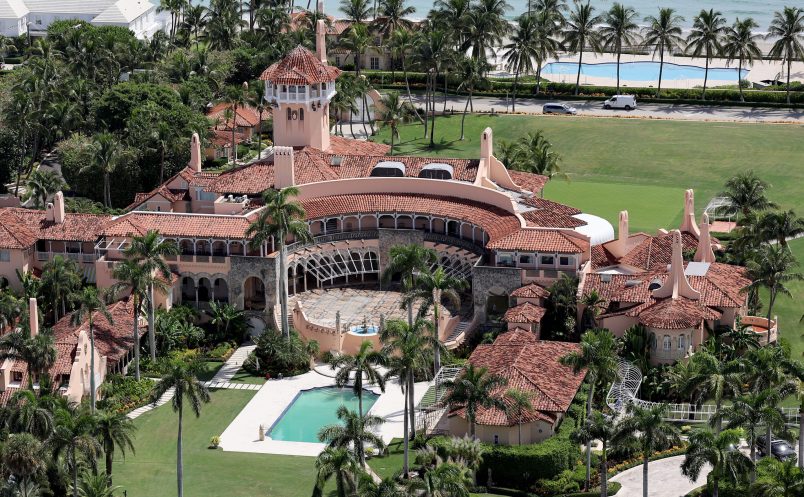Newly free, the DOJ is now returning to what it was doing in August: investigating Trump’s retention of government documents at Mar-a-Lago, and considering whether to charge him.
After the 11th Circuit Court of Appeals put an end to the freeze that U.S. District Judge Aileen Cannon for the Southern District of Florida placed on the probe, the investigation is, in some ways, picking up where it left off.
That was a place shaped largely by two factors: the brazenness of Trump’s alleged crime, and the caution with which the DOJ approached the investigation. It leaves the DOJ both with a difficult choice, and a tough enemy.
It was brazen.
Trump left office in January 2021.
For months and months and months, he allegedly retained government records, some of them highly classified.
The government initially approached the matter gingerly.
The National Archives and Records Administration first asked for the records back in May 2021. That set off months of discussion between the two sides, with Trump eventually agreeing to hand over some documents in December 2021.
That transfer of an initial 15 boxes of records to the government took place in January 2022.
It wasn’t over for Trump, however. Government workers found that many of the records had been damaged, shredded, and scribbled on.
That’s a potential crime, but even more seriously, archives officials found evidence that highly classified records were mixed in with the stash.
That led to a criminal referral. The FBI began to investigate while developing more evidence that Trump wasn’t being forthcoming: he was still holding on to government records.
At every turn, Trump jerked the government around.
When the FBI began investigating, Trump attorneys delayed their access to materials from his administration for a month.
When the feds asked Trump attorneys to conduct a search to ensure that no more classified-marked documents were present, the lawyers signed a certification attesting that was true — an assertion that later proved to be false.
And when the FBI searched Mar-a-Lago in August to recover the remaining records, Trump sued in civil court to block the investigation — a move that, improbably, worked for a short time.
What to charge?
But now that the investigation is back on track, prosecutors face a choice: what charges to bring?
An application for a search warrant mentioned three separate crimes that were under investigation: retaining national defense information, obstruction, and destruction of government records.
Some legal commentators have argued that what appears to be the most brazen, and obvious violation — retaining national defense information — may be the easiest charge to bring.
Part of this has to do with what Trump did: it’s not only that he took the records, it’s that he held onto them.
It’s the retention of national defense information that’s a crime. Not stealing it.
Per public reporting, the records were removed from the White House when Trump was in office. It’s the holding onto them after he departed that’s the crime, and it allegedly took place in south Florida, a jurisdiction where Judge Cannon sits.
There are other potential crimes that have come up. In Lawfare, some former prosecutors have suggested that the DOJ could bring conspiracy charges against Trump, or accuse him of lying to government officials.
Until then, the DOJ appears to still be struggling to pin down exactly how much material Trump might still have. The government reportedly failed on Friday in a bid to hold him in contempt of court for failing to comply with a grand jury subpoena for the rest of the records; we’re waiting to see the DOJ’s next move.







First
Second
Again with me being first? OK second…
This will only end when a full and complete list is generated, and teams are sent to hunt for the missing documents at all Trump properties.
Damn third, but I still placed.
You have more purpose and substance.
Please, Lady Justice, can we see some accountability?